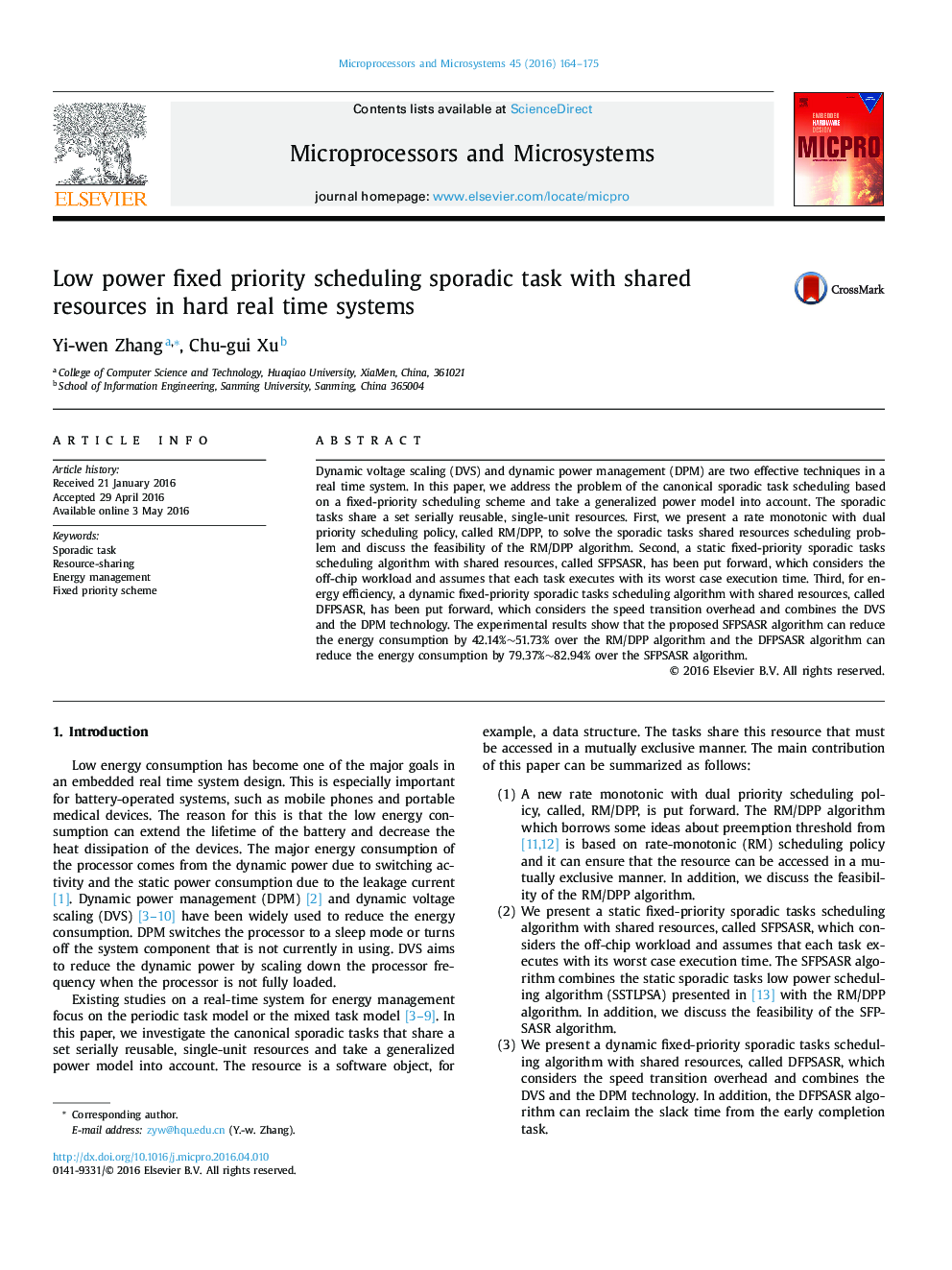| کد مقاله | کد نشریه | سال انتشار | مقاله انگلیسی | نسخه تمام متن |
|---|---|---|---|---|
| 461213 | 1364717 | 2016 | 12 صفحه PDF | دانلود رایگان |
• We consider a scheduling problem of the sporadic task that shares resources.
• We present a new scheduling policy based on a fixed-priority scheduling.
• The energy management problem is considered in a real time system.
• Two techniques are presented to solve a sporadic task shared resources problem.
Dynamic voltage scaling (DVS) and dynamic power management (DPM) are two effective techniques in a real time system. In this paper, we address the problem of the canonical sporadic task scheduling based on a fixed-priority scheduling scheme and take a generalized power model into account. The sporadic tasks share a set serially reusable, single-unit resources. First, we present a rate monotonic with dual priority scheduling policy, called RM/DPP, to solve the sporadic tasks shared resources scheduling problem and discuss the feasibility of the RM/DPP algorithm. Second, a static fixed-priority sporadic tasks scheduling algorithm with shared resources, called SFPSASR, has been put forward, which considers the off-chip workload and assumes that each task executes with its worst case execution time. Third, for energy efficiency, a dynamic fixed-priority sporadic tasks scheduling algorithm with shared resources, called DFPSASR, has been put forward, which considers the speed transition overhead and combines the DVS and the DPM technology. The experimental results show that the proposed SFPSASR algorithm can reduce the energy consumption by 42.14%∼51.73% over the RM/DPP algorithm and the DFPSASR algorithm can reduce the energy consumption by 79.37%∼82.94% over the SFPSASR algorithm.
Journal: Microprocessors and Microsystems - Volume 45, Part A, August 2016, Pages 164–175
